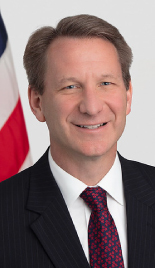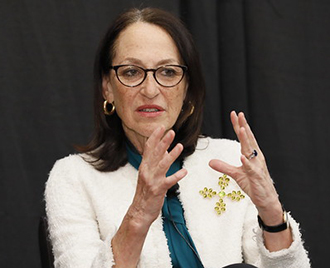US biomedical leaders call for action in science, diversity in workforce

|
U.S. FDA Acting Commissioner Ned Sharpless |
Sharpless did not identify any company that has engaged in fraudulent behavior, but in early August, the FDA reported that Novartis AG had submitted manipulated preclinical animal data in its application for its $2.1 million gene therapy Zolgensma — a charge now being investigated by Congress.
Whether sloppy, slipshod collection of data or deliberate falsification, the outcome is the same: it harms patients and public confidence in science, Sharpless said.
“We simply cannot tolerate deception of any kind at the FDA,” he said.
Sharpless emphasized he was not implying the problem of fraudulent data in FDA applications was rampant or on the upswing.
“These are rare cases,” he said. “But we do see data fraud at FDA and more than I would have expected prior to coming to the agency.”
While the FDA has “vigorous” mechanisms and processes in place to check data quality, “at some level, we have to trust sponsors. That’s the way the system works,” Sharpless said.
But, he warned, “we will be vigilant” and any companies caught of deliberately falsifying data will be punished.
At the conference, Mary Woolley, president of Research!America, which advocates for stronger investment in the U.S. biomedical enterprise, reiterated her group’s support for Sharpless to retain his position permanently — a job he holds in a temporary capacity.
But Sharpless faces competition for the commissioner nomination, including from Stephen Hahn, chief medical executive at MD Anderson Cancer Center in Houston, the latest contender seeking the job.
Putting science into action
Also at the conference, Robert Redfield, director of the Centers for Disease Control and Prevention, urged more investment in the core capabilities required to address the nation’s public health needs, such data and data analytics, laboratory capacity and the workforce.
“This is an opportunity for us to revitalize the public health infrastructure of this nation,” Redfield said. “I believe to this day it is something that is underinvested in.”
But in all three of his budget requests to Congress, Redfield’s boss, President Donald Trump, has called for significant cuts to the CDC’s budget.
As CDC director and an infectious disease expert, Redfield said he knew he would be confronting outbreaks and epidemics.
But, he said, “who knew the outbreak” would be the U.S. opioid and addiction epidemic?
He also lamented the latest epidemic in the U.S.: e-cigarette use in young adults.
While those products were initially seen as an “off-ramp” for combustible tobacco use, “it’s become an on-ramp for nicotine addiction,” Redfield said.
The CDC chief also stressed the importance of not leaving valid science on the shelf.
“We need to actively engage new science and put it into timely action to provide meaningful solutions,” Redfield said. “Science on the shelf, in my view, has little value. But science in action can change the human condition.”
The ongoing clinical research testing Regeneron Pharmaceuticals Inc.’s REGN-EB3 and the National Institutes of Health’s mAb114 in the midst of the Ebola outbreak in the Democratic Republic of the Congo — an armed conflict zone — is the best example of science in action, he said.
“It’s remarkable,” Redfield said. “They didn’t wait for the perfect setting to do research.”
Retaining women, collaborating key in science success
Panelists at the conference also discussed ways to retain women in science, the importance of public-private partnerships, the vanishing vaccines industry and the use of real-world data.
|
|
“Leaders must focus on changing the environment of science so that people from all different walks of life, gender, ethnicity and race are in a good position to succeed,” said Erin O’Shea, president of the Howard Hughes Medical Institute. “That is not the case now. We have serious issues about bias, about harassment that we need to clean up.”
O’Shea noted HHMI sponsors the Hanna H. Gray Fellows Program, which is aimed at recruiting and retaining individuals in underrepresented groups and enhancing diversity in the life sciences. The program invests more than $1.2 million in each fellow during their postdoctoral and early academic careers.
American Association for the Advancement of Science Chair Margaret Hamburg, a former FDA commissioner, also noted her organization’s If/Then Ambassadors program, which brings together 100 women from a variety of science, technology, engineering and mathematics careers to serve as high-profile role models for middle school girls.
“We need to make sure we have the pathways” for young girls to be exposed to science and math and “try out new things,” Hamburg said.






 Margaret Hamburg
Margaret Hamburg